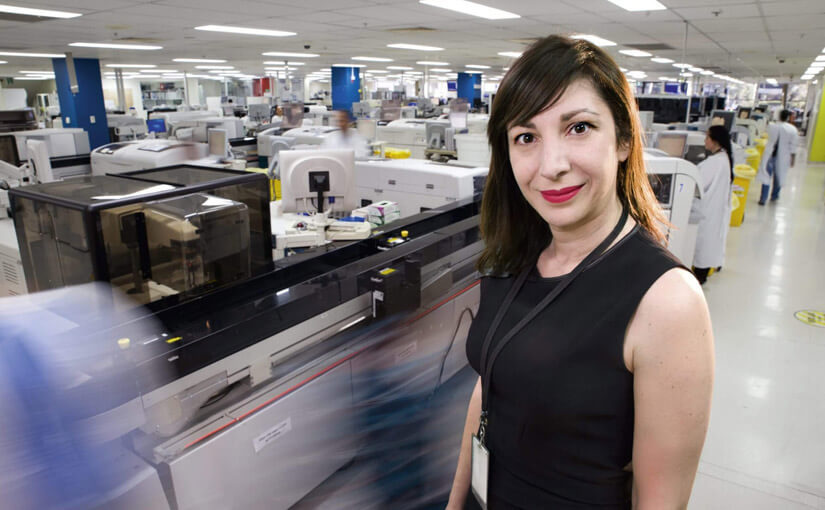As an ambassador for Pathology Awareness Australia, Dr Melody Caramins was an excellent communicator and had the expert ability to patiently explain complex science to a consumer audience.
Melody was the first person in Australia to graduate as a fellow in genetic pathology in 2006, and she went on to be a senior lecturer at the University of New South Wales and a nationally recognised and highly respected expert in the field. For six years she was Chair of the Royal College of Pathologists of Australasia’s (RCPA) Genetics Advisory Committee as well as being a member of the Human Genetics Society of Australasia and closely involved in their policy work.
Before diverting her career path to genetic pathology, Melody trained as a cardiothoracic surgeon. She was attracted to medicine because of a strong desire to help people and alongside her work in the laboratory, she led many efforts to achieve better access to genetic testing which would benefit patients and their families.
In 2017 she was thrilled when a decision was taken to list BRCA gene testing on the Medicare Benefits Schedule for women at high risk of breast and ovarian cancer. She believed in bringing genetic and genomic testing into mainstream medicine to provide the most benefit to patients.
“This is a crucial step in mainstreaming genetic testing, so families don’t have to have to live in doubt any longer,” she said of the decision.
Most recently she was a leader in the successful application, in August 2020, to include testing on the Medicare Benefits Schedule for patients with ovarian, fallopian tube or peritoneal cancer to determine the presence of BRCA gene mutations and whether they are hereditary.
When interviewed in 2020 by MiNDFOOD magazine, Melody showed what many pathologists feel; that though they may never meet their patients, the person behind the sample is always foremost in their mind.
“We treat every sample like it’s a potentially life-changing event for the person at the other end. If you’re dealing with whether or not you have a diagnosis of something like cancer or Down syndrome, I’m acutely aware of the person at the other end. I’ve always wanted to improve things for patients – that’s the reason I did medicine,” she said.
The team at KPKH has been deeply saddened to hear of Melody’s passing in December 2020, and our thoughts are with her loved ones.

